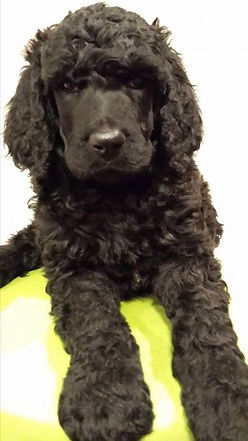Training/Therapy







Puddle Jumper Puppies strongly urges all puppy owners socialize their puppies from the start and to invest the time and energy into puppy training and obedience classes, starting as early as 8 weeks and as late as 12 weeks of age, in order to lay the foundation for a wonderful companion for many years to come!
A new study shows that the parents reported the benefits of dog ownership included companionship, stress relief and opportunities for their children to learn responsibility. http://munews.missouri.edu/news-releases/2014/0414-dog-ownership-benefits-families-of-children-with-autism-mu-researcher-finds/)
“Children with autism spectrum disorders often struggle with interacting with others, which can make it difficult for them to form friendships,” said Gretchen Carlisle, a research fellow at the Research Center for Human-Animal Interaction (ReCHAI) in the MU College of Veterinary Medicine. “Children with autism may especially benefit from interacting with dogs, which can provide unconditional, nonjudgmental love and companionship to the children.”
Watch for the Poodle Pages that North Star Foundation asked me to write for their 2nd upcoming book, "Angels Aware," for more info about our learning experience with poodles.
I now have the privilege to work as a dog trainer with our own dogs' trainer. This local trainer in the Lake Delton/Wisconsin Dells area that we highly recommend is Pam Collar of Treat Play Love LLC. You can contact her for a wide range of training needs and for her upcoming class schedules: pam@treatplaylovedogs.com. Pam regularly makes a wide array of classes available: puppy, intermediate, Canine Good Citizen, etc. Pam will also have AKC Therapy, agility, and trick training available in the weeks to come.
Treat Play Love Dogs
at the Pet Retreat
E9891 County Hwy P
Wisconsin Dells, WI 53965
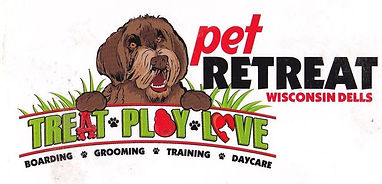
We use a mix of Alpha and Positive Reinforcement training.
I created this Training Checklist & Training Assessment to help keep track of training goals for your puppy/dog:

dog training checklist rev5212014.pdf (PDF — 466 KB)

Puppy Dev Stages.pdf (PDF — 218 KB)
Puppies are very similar to toddlers. They need you to be consistent, proactive, patient, and positive to set them up for success going forward. Poodles are very in tune with their people. If you are frustrated, they will sense it and be frustrated. Poodles are very intelligent and eager to please when they consistently know what you want. Poodles are fun loving. So, make learning fun.
Introducing a new pup
Introducing a new pup with an older pup can be easy as pie or can take extra finesse to set the whole household up for success. All dogs have individual personalities and 2 or more dogs just don't always mesh; this can especially be a challenge with more dominant or more insecure personalities.
To take every precaution for a pleasant intro that will start a relationship off on the right track, I would say your best bet would be to have a new & older dog meet at a neutral location, like a park, so that an older dog is not threatened in the least. Instead of walking right into each other's space face-to-face, I would also have them casually walk past each other on leashes.....maybe even back and forth, passing each other a little closer every time and when they pass in a friendly way give them a treat and praise and keep walking, until they pass each other very closely and meet face to face. At that point, I would continue to praise and treat them and have them each focus on you for treats and positive, calm and confident attention. This sends the message that they are both equals there for you, not to compete for you..... Continue this way until they show a comfort level with each other.
Crate Training
If you are planning to use the crate for bedtime, naptime, home alone time or anything else, the crate should NEVER be used as a punishment. If it becomes the naughty spot then it will be negative for anything and everything else....and you will get resistance. It's like putting a kid in the corner with a dunce cap on & then trying to reuse the dunce cap for his party favor.
Make the crate a fun and safe place to be. Put a blanket on the floor, food and water dish down (the ones that secure to the door or side of the crate are very helpful to prevent spilling and are easily accessible), toys with different textures to satisfy teething urges, and sprinkle some dog training treats in there. The more you sprinkle them around and your puppy has to explore his crate to find them the more positive time he is associating with his crate. Then, happily say, "Kennel up," (or whatever consistent word association you prefer) and let him see you throw a couple of treats toward the back of the crate. When he jumps into the crate to search out his treats say, "yes" & "good boy" (your praise word). Repeat this regularly.
If you are using the crate for bedtime, simply and happily say, "Kennel up," with a treat in your hand. Put the puppy in his crate and say, "Yes," and hand him his treat. We leave the door open during the day and find that some puppies will gravitate toward their crate for naptime & downtime. We had one puppy that we were training to go into service work, who would go into his crate and sit just so he could get a treat. When it was bedtime, he would nose his own crate open to go in and lay down.
Even if your puppy whines, do not coddle him. If you coddle him and give him sympathy or show regret, he will think the crate is something to be dreaded and will resist even more. Be confident, matter-of-fact, and upbeat. Then ignore any whining, barking or protesting. He will eventually realize that he needs to adapt. This unemotional process with teach him to be more adaptable in general. The crate size should be just big enough for him to stand up, lay down, and turn completely around.
It goes against a dog's natural instincts to go potty where he eats. This will teach him to hold it in his confined area. However, puppies bladders are not completely formed until around 4 months old. So, he may have accidents in his crate until up to 4-6 months old, until he is expected to be full proof. Do not assume that your pup is not capable of getting the crate training concept. Just clean out his crate thoroughly to get any potty smells out and set him up for success for the next night. As your pup ages, you will have less and less accidents. Some pups will never go potty in their crates; some never have accidents in the house (with a great set up and schedule). Regardless, don't get frustrated and give up. Think of this process as potty training a baby. It takes time, persistence, and patience.
Potty Training
We always recommend having a designated "potty spot" outside that will serve as your pup's constant reminder of what task is at hand. Take him, on his leash, to the potty spot and say, "go potty" (or whatever cue word works best for you), with urgency in your voice. Do not look at him, engage with him, or play with him until he goes potty. As soon as he goes potty say, "Yes" (or use a clicker or your own "marker" word for well done). Some people also use treats at this point. Then allow for playtime.
Puppies typically need to go outside to go potty around 10 minutes after eating/drinking, after playtime, after snuggle time, and always directly after naps.
Keep a very close eye on your puppy to get him into an effective routine and to learn what his natural schedule is. When you cannot watch him, confine him in a small area, where he cannot cause any damage. It goes against a dog's natural instincts to go potty where he eats. So, confine his area to just enough space for him to lay down and turn around. But, remember, puppies bladders are not completely formed until around 4 months old. So, he may have accidents until up to 4-6 months of age, until he is expected to be full proof. If your puppy has an accident, just clean the spot thoroughly to get any potty smells out. As your pup ages, you will have less and less accidents. Some puppies will never have accidents in the house (with a great set up and schedule), others take a little more time, especially if they have setbacks along the way.
If your pup has an accident, try to catch him in the act; this can be the best opportunity to correct him and possibly prevent future accidents. If you see him hunkering down, just say sharply, "ah ah," then, more positively, "outside," and take him directly to his potty spot and follow through on your regular routine. Do not berate your puppy or be harsh. This will only serve to make your puppy insecure or oversensitive. Poodles are very smart and want to please their people. They just need time and patience to learn the process and mature.







Not wanting to go Potty in the Rain
Scolding typically does not work with poodles. You have to make everything as upbeat as possible. They are somewhat sensitive (some more than others) and aim to please their people. Use lots of positive reinforcement. Poodles are water dogs, and therefore you wouldn't think going potty in the rain would be a problem, right?!? However, poodles want to be by your side because they are connected to their people and don't want to leave their side, especially when their people show any sign that going out into the rain isn't a great thing to do. Poodles are very attuned to their people. If they see you tense, flinch, avoid, or refrain from traipsing out into the rain....they will too.
To make potty time in the rain tolerable, and even appealing, go outside with your puppy in the rain until he/she goes potty a few times so that she sees that rain is not so bad & nothing to be avoided.
Mouthing
NEVER allow your puppy to chew on your fingers, hands, clothing, or any other part of your body. Puppies have a hard time differentiating playtime between their littermates (who chew on each other for fun) and their human family members. Mouthing can also be the only way they know to try to get your attention. So, we need to set firm boundaries to prevent injuries and prevent bad behaviors from forming, as well as encourage positive ways to interact for attention.
Be sure your puppy has access to toys with a variety of textures to satisfy their powerful teething urges.
When your puppy gets mouthy with you, say firmly, "no bite," and put a chew toy by their mouth. If they seem more interested in chewing on your fingers than their toys, then make their toys more fun for them. Do not play tug of war with your pup. This can encourage aggressive play with kids.
Teach games like, "fetch," early on. "Fetch" is a safe and interactive game that helps to redirect them in a positive way and stimulates their senses. At first, just pull their toy around in front of them. Let it jig and jag a bit to intrigue your puppy. Let them pounce on it and mouth it. Then, toss it out in front of them. When they grab it, then happily call them back. If your pup drops it or loses interest. Just grab the toy and make it interesting again by hiding it right behind them or partially under a blanket, then get excited when you find it right in front of them. It may take a few playful sessions for them to start fetching.
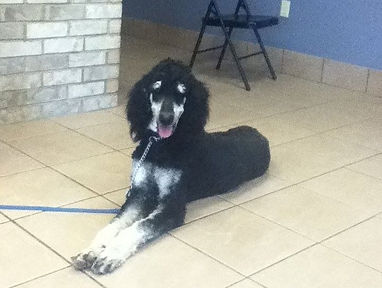
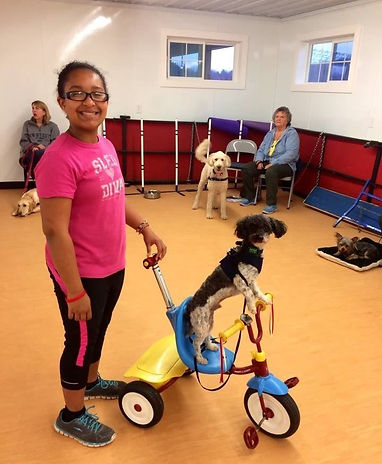
Barking
NEVER give your pup positive attention for nuisance behaviors, including barking. Quickly correct with the word, "Quiet," & turn your back away from them. If, for whatever reason, they get into the habit of barking [for attention or out of understimulation/boredom] saying the command word, "Quiet," directly followed by spritzing them in the face with a water bottle filled of vinegar should eliminate the behavior in a short/consistent time period. If the vinegar spritz does not do the trick an ultrasonic pet trainer that lets off a high-pitched sound that only dogs can hear can be very helpful. Available at http://www.amazon.com/EMSON-MISHON-PetZoom-8140-Trainer/dp/B003EYUDT2/ref=sr_1_2?ie=UTF8&qid=1404239861&sr=8-2&keywords=ultrasonic+pet+trainer
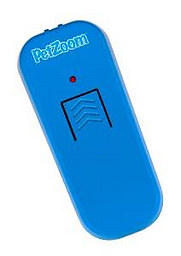
If your pup gets overwhelmed or overstimulated, just take a break or try again the next day. Try to leave training sessions on a positive note, with your puppy feeling confident, so that he will be ready for many more training sessions with you in the future.
Separation Anxiety
If separation anxiety is an issue then you will need to be very unemotional with your pup when leaving. Do practice sessions, starting with short periods of time, to leave him unemotionally & matter-of-factly. Just say, firmly but in an upbeat way, "I'll be back" & leave his sight. Come back & completely ignore him (pet him & talk to him only when he is calm & being polite & quiet). Practice coming & going several times this way.
~My best advice for training is to start out the way you mean to continue. No matter how cute your puppy is, he/she will get big and obnoxious if allowed to develop bad behaviors while young. Poodles are a whole lot of fun to train, especially once you get into a good routine.~
